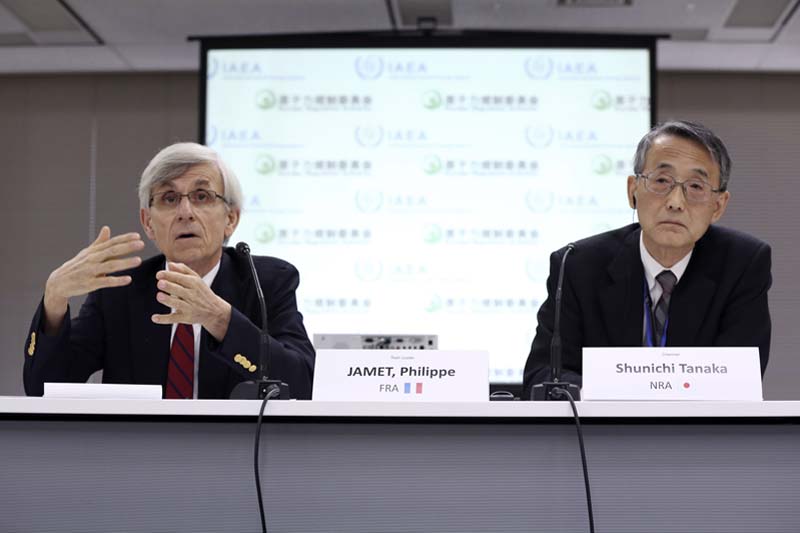Japan to lift Iran sanctions after nuclear deal
TOKYO: The Japanese Cabinet approved Friday the lifting of sanctions on Iran, following the recent completion of a landmark nuclear deal to try to prevent Iran from developing weapons.
Japan's nuclear safety regulation has improved since the 2011 Fukushima disaster, but it still needs to strengthen inspections and staff competency, a team of experts from the International Atomic Energy Agency said.
It was the first IAEA review for the authority since it was established in 2012. Japan adopted stricter safety requirements for plant operators, but the law stipulating on-site inspections remained unchanged.
The widely expected move will allow Japanese companies to pursue investment in Iran's oil and gas industry.
Chief Cabinet Secretary Yoshihide Suga told reporters that the government would cancel bans on Japanese investment in both exports to Iran and in oil and gas-related business.
"We will continue to support the consistent implementation of the final agreement on the Iranian nuclear issue as we see it as a way to enforce nuclear non-proliferation and contribute to stability in the Middle East," he said.
The UN certified last weekend that Iran had met all of its commitments under the nuclear deal, leading to the lifting of long-standing Western economic sanctions on the country.
The 17-member team, which concluded a 12-day inspection that included the wrecked Fukushima plant, said Friday that Japan's regulatory body demonstrated independence and transparency — crucial elements lacking before the disaster, when a separate agency was in charge.
The Fukushima Dai-ichi nuclear power plant was hit by a massive earthquake and tsunami on in March 2011, triggering triple meltdowns.
The inspection team urged the Nuclear Regulation Authority to enhance inspection competence and for Japan's government to amend its nuclear safety law to make on-site safety checks more effective and flexible.
Mission leader Philippe Jamet, a French regulatory commissioner, said Japan's stiff inspection rules do not allow inspectors to move freely at nuclear facilities or respond quickly when there was a problem.
"At any time and for any plant, inspectors should be allowed to go where they want. And there is a comprehensive framework for Japan but it doesn't give any, it doesn't give enough freedom for the inspectors to react immediately and to provide results," he told a news conference.
He also said inspectors need to keep distance from the utilities.
A final report by the team is expected in about three months.






